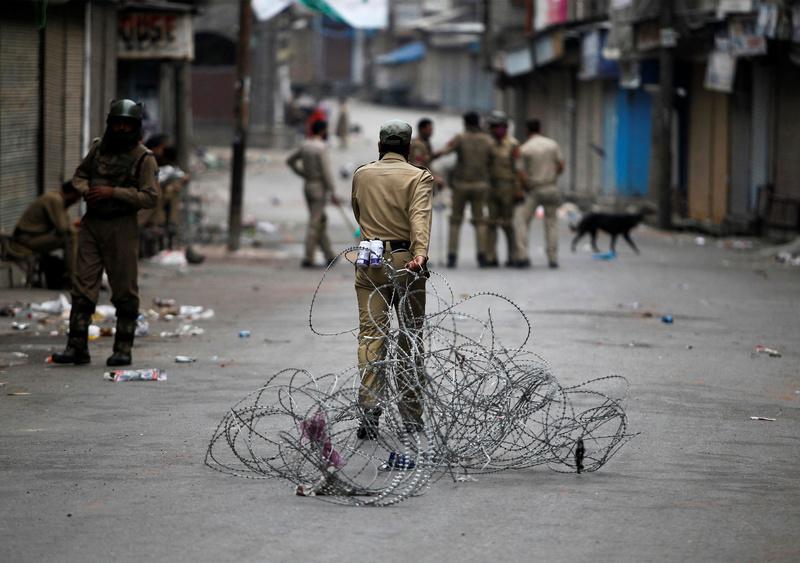
The day is marked by a national holiday. Statements eulogising the sacrifices of Kashmiris in the face of brutal use of force by the Indian forces are issued, rallies are staged across the country and resolutions are adopted showing support to the people of Kashmir for their right to self-determination.
This year, the PTI government led by Prime Minister Imran Khan went a step further to extend support to the Kashmiris. Foreign Minister Shah Mehmood Qureshi travelled to London and attended several events, including one at the British Parliament, for the Kashmir cause.
All such efforts were aimed at highlighting the human rights violations being committed by Indian forces in Kashmir, which has long been the scene of tensions.
Pakistan, being a legitimate party to the dispute, has every right to highlight the Indian atrocities in the scenic Himalayan region. But do Pakistan’s efforts really get any traction globally? Unfortunately, barring a last year’s report by the UN Human Rights Council chief criticising the systematic human rights abuses in the occupied territory, rest of the world — even the Arab countries with which Pakistan has close ties — are not bothered much about what’s happening in Kashmir.
The reason India gets away without any punitive measure is that in the international relations, economic interests trump issues of human rights and morality. In fact, morality and international laws are often used by powerful countries against weak nations.
It is estimated that more than a million people died as a direct consequence of Britain’s flawed policies during partition in 1947. But no one has ever questioned Britain for the crimes it directly or indirectly committed in the subcontinent. Interestingly, Britain today even lectures us on human rights. Why Britain was not held accountable is because it was powerful.
That’s not the only example. After the 9/11 attacks, the US military interventions in Afghanistan, Iraq and Syria claimed at least half a million lives. Did anyone think of dragging the US to the dock? This means no one can catch you if you are powerful.
India, under Prime Minister Narendra Modi, has been using brazen tactics to crush the genuine uprising in Kashmir. It has also tried to change the rules of engagement with Pakistan.
Now even a mere telephonic conversation between the Pakistani foreign minister and Kashmiri leaders invites a strong reaction from New Delhi. There was a time when Kashmiri leaders from across the LoC travelled to this part frequently and India never objected to that.
India’s hardened stance stems from its economic prowess that enhances its clout globally. This transformation has allowed India to neutralise any outside pressure on Kashmir.
In this changing scenario, what Pakistan needs to do is to formulate its Kashmir strategy based on realism. India and the world will take Pakistan seriously only when we unleash our true economic potential and create stakes in international trade.
It is foolish to think that India would give any concessions to Pakistan on Kashmir knowing where today we stand economically. The current government has borrowed money from Pakistan’s friends to keep the faltering economy afloat.
The IMF package may be next. And this is a template followed by successive governments in Pakistan for decades. The reason we have never been able to grow is because of absence of structural reforms, longstanding issues pertaining to civil-military imbalance, fragile democracy and lack of industrial advancement despite being a nuclear power.
With these weak indicators and a plethora of issues, Pakistan can never forcefully plead its case on Kashmir to the world and India. Only an economically powerful and politically stable Pakistan can guarantee a better bargain on Kashmir.
Published in The Express Tribune, February 11th, 2019.
Like Opinion & Editorial on Facebook, follow @ETOpEd on Twitter to receive all updates on all our daily pieces.













COMMENTS (2)
Comments are moderated and generally will be posted if they are on-topic and not abusive.
For more information, please see our Comments FAQ